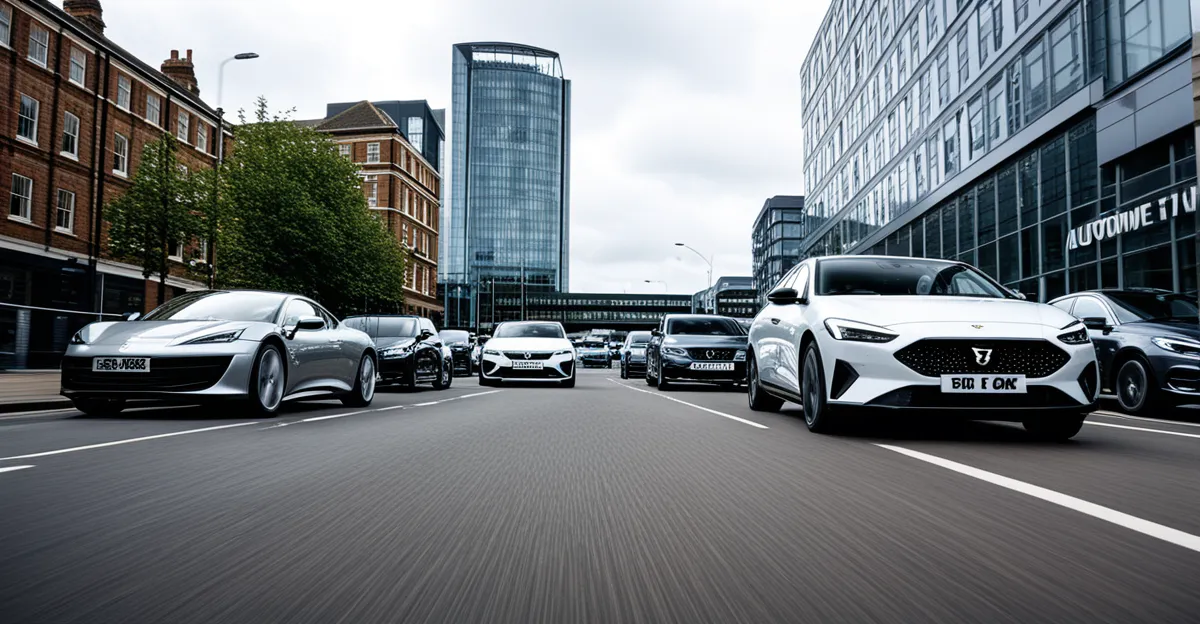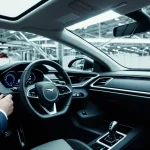Recent Innovations in UK Automotive Technology
The UK automotive technology sector is rapidly advancing, positioning itself at the forefront of automotive innovation UK. A key driver in this progress is the increased focus on electric vehicles (EVs), which offer significant environmental benefits by reducing emissions. Innovations in battery technology and charging infrastructure in the UK are making EVs more accessible and practical for everyday use.
Alongside electrification, autonomous vehicles are a major area of development. UK-based firms and research institutions are experimenting with self-driving systems designed to enhance safety and efficiency. These vehicles use a combination of sensors, cameras, and AI to navigate complex urban environments, promising to reshape future travel.
In the same genre : How are UK automotive companies improving supply chain resilience?
Integral to these advancements is smart car technology, which integrates vehicles with traffic management systems and cloud data. This connectivity supports real-time traffic updates, predictive maintenance, and personalized driving experiences, contributing to reduced congestion and improved urban mobility.
Examples from UK companies highlight a collaborative approach: from innovative startups focused on EVs to established manufacturers deploying autonomous technology, the ecosystem is vibrant. These efforts underline the UK’s commitment to sustainable, intelligent transportation solutions, reinforcing its role as a leader in automotive innovation UK.
Also read : What Are the Challenges Facing the Future of the UK’s Automotive Industry?
Effects of Automotive Technology on Urban Mobility
Emerging UK automotive technology is playing a crucial role in reshaping urban mobility. One of the most immediate effects is the notable congestion reduction across major cities such as London and Manchester. This is largely attributed to the proliferation of electric vehicles (EVs), which eliminate tailpipe emissions, and the integration of autonomous vehicles that optimize traffic flow through precise navigation and reduced human error.
Beyond easing traffic, these innovations enhance transportation efficiency by enabling smarter route planning and adaptive traffic control systems. The widespread adoption of smart car technology facilitates real-time data exchange between vehicles and infrastructure, leading to better-managed urban traffic networks. This connectivity also improves public safety by reducing accidents through advanced driver assistance and vehicle-to-everything (V2X) communication.
Furthermore, integrating these technologies supports urban sustainability by lowering pollution levels and encouraging eco-friendly transport alternatives. For example, shared autonomous EV fleets can reduce the total number of vehicles on the road, easing parking demands and urban land use.
Data from pilot projects in the UK confirm these benefits, demonstrating tangible improvements in air quality and less congested city centres, marking a significant step toward smarter, greener urban mobility.
Government Policies and Industry Collaboration
Government action plays a pivotal role in accelerating automotive innovation UK, particularly through comprehensive UK transport policy frameworks. Policymakers have introduced numerous incentives promoting the adoption of electric vehicles, such as grants and tax breaks that lower ownership costs. These initiatives directly stimulate consumer uptake, making EVs an increasingly common sight on UK streets.
Moreover, government-backed pilot programs create valuable testing grounds for autonomous vehicles and smart car technology deployment. These projects foster collaboration between public agencies and automotive industry leaders, who pool expertise and resources. Such partnerships are vital for developing robust urban transport strategies that integrate state-of-the-art technologies efficiently.
The role of public-private partnerships cannot be overstated. They enable scaling up promising technologies from research labs to real-world environments, ensuring smoother integration within urban infrastructure. By coordinating efforts across industry and government, the UK can implement comprehensive solutions that address urban mobility challenges effectively.
City planning initiatives are increasingly incorporating smart infrastructure, such as connected traffic systems compatible with autonomous and electric vehicles. This alignment between government policies and industry collaboration creates a strong foundation for sustainable, technology-driven urban transport networks aligned with future mobility goals.
Challenges to Implementation and Adoption
Adopting UK automotive technology faces several challenges that slow the widespread use of electric vehicles, autonomous vehicles, and smart car technology. A primary barrier is the existing gap in urban infrastructure. Many cities require significant upgrades to roads, charging stations, and communication networks to support these advanced vehicles effectively.
Regulatory hurdles further complicate deployment. Clear and unified standards for autonomous vehicle safety, data privacy, and cybersecurity are still under development. These regulations must balance innovation with public protection, but current uncertainties cause delays for manufacturers and city planners.
Cost also remains a significant deterrent. The upfront expense of electric vehicles and sensor-rich autonomous cars can be prohibitive for many consumers, despite government incentives. Public acceptance plays a role too; skepticism about safety and unfamiliar technology limits eagerness to adopt.
Addressing these challenges requires coordinated efforts between government, industry, and urban planners to update infrastructure and create robust policy frameworks. Additionally, transparent communication on data security and real-world safety performance can build trust, encouraging a smoother transition to smart, efficient urban mobility.











